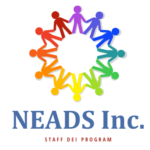| Let’s Talk about Neurodiversity at Work | Ableism, In the Workplace, Neurodiversity | 1 hr +/- | | | ableism in-the-workplace neurodiversity-ableism |
| Exploring Different Brains: Life With Misophonia | Ableism, Neurodiversity | 15 min | | | ableism neurodiversity-ableism |
| See dyslexia differently | Ableism, Neurodiversity | <5 min | | | ableism neurodiversity-ableism |
| What is neurodiversity? | Ableism, Invisible Disabilities, Neurodiversity | <5 min | | | ableism invisible-disabilities neurodiversity-ableism |
| Neurodiversity & Neurodivergent: Meanings, Types & Examples | Ableism, Invisible Disabilities, Neurodiversity | 5-10 min | | | ableism invisible-disabilities neurodiversity-ableism |
| This is what it’s really like to live with ADHD | Ableism, Invisible Disabilities, Neurodiversity | 20-30 min | | | ableism invisible-disabilities neurodiversity-ableism |
| Attention-Deficit Neuropsychology (ADHD) – an interview with Dr. Russell barkley | Ableism, Invisible Disabilities, Neurodiversity | over 1 hr | | | ableism invisible-disabilities neurodiversity-ableism |
| “No you’re not” – a portrait of autistic women | Ableism, Invisible Disabilities, Neurodiversity | 5-10 min | | | ableism invisible-disabilities neurodiversity-ableism |
| Appropriate Terms to Use about Disabilities | Ableism, Children with Autism, Deaf/Hearing Loss, Neurodiversity, People with Physical Disabilities | 5-10 min | | | ableism children-with-autism deaf-hearing-loss neurodiversity-ableism people-with-physical-disabilities |
| 13 Productive Ways To Support Neurodivergent Employees | Ableism, In the Workplace, Neurodiversity | 5-10 min | | | ableism in-the-workplace neurodiversity-ableism |
